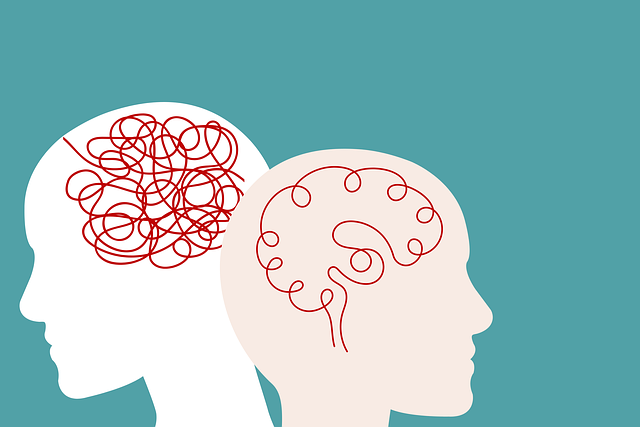Castle Rock Mindfulness Therapy prioritizes cultural sensitivity as a cornerstone of its mental healthcare approach. Recognizing the diverse needs of its clients, therapists undergo specialized training in cultural competency to provide personalized support and meaningful connections. By integrating this awareness into their practice, they go beyond standard protocols, offering communication strategies that respect individual differences and promote culturally responsive emotional well-being techniques. This holistic approach enhances mental wellness, strengthens the therapeutic bond, and ensures profound healing tailored to each patient's unique community.
“In today’s diverse society, cultural sensitivity in mental healthcare is more vital than ever. This article explores the profound impact of cultural diversity on mental well-being and delves into practical strategies for service providers. We spotlight Castle Rock Mindfulness Therapy, showcasing how they’ve seamlessly integrated cultural awareness into their practices.
Through effective cross-cultural communication techniques, professionals can offer tailored support, ensuring equitable access to care. By understanding and respecting diverse backgrounds, we foster inclusive environments that promote healing.”
- Understanding Cultural Diversity and Its Impact on Mental Health
- Integrating Cultural Sensitivity into Therapy Practices at Castle Rock Mindfulness Therapy
- Strategies for Effective Cross-Cultural Communication in Mental Healthcare
Understanding Cultural Diversity and Its Impact on Mental Health

In today’s diverse society, mental healthcare practices must embrace cultural sensitivity to effectively address the needs of a wide range of individuals. Understanding cultural diversity goes beyond recognizing different ethnic backgrounds; it involves appreciating the varied ways people interpret and express their experiences, beliefs, and behaviors. This is crucial for providing inclusive care, as mental health issues can manifest differently across cultures due to social norms, family dynamics, and spiritual practices. For instance, a client from a collectivist culture might seek support from their community, while an individual from an individualistic background may prefer private therapy sessions.
At Castle Rock Mindfulness Therapy, we recognize that cultural context plays a significant role in shaping one’s mental wellness. Our therapists undergo specialized training to foster self-awareness exercises that consider these nuances, ensuring every client receives personalized care. By promoting cultural sensitivity, we aim to prevent burnout among practitioners and encourage the development of robust coping mechanisms in our clients. This holistic approach not only enhances mental wellness but also strengthens the therapeutic bond, making it a cornerstone of our practice.
Integrating Cultural Sensitivity into Therapy Practices at Castle Rock Mindfulness Therapy

Castle Rock Mindfulness Therapy recognizes the vital role cultural sensitivity plays in effective mental healthcare. With a diverse population seeking therapy, integrating this awareness into practice is essential for fostering meaningful connections and delivering tailored support. The therapy team undergoes rigorous training in cultural competency, equipping them with the skills to navigate sensitive topics and understand the unique perspectives of each client.
By incorporating cultural sensitivity, Castle Rock Mindfulness Therapy goes beyond standard risk assessment for mental health professionals. They employ communication strategies that respect individual differences, ensuring every client feels heard and validated. This approach not only enhances the therapeutic process but also promotes emotional well-being promotion techniques that are culturally responsive and inclusive.
Strategies for Effective Cross-Cultural Communication in Mental Healthcare

In the realm of mental healthcare, effective cross-cultural communication is a game-changer, fostering meaningful connections and ensuring personalized support for diverse patient populations. When practicing Castle Rock Mindfulness Therapy, understanding cultural nuances is key to delivering empathetic care. One strategic approach involves actively listening to patients’ stories, allowing them to express their experiences in their own words, thus building trust and encouraging open dialogue. This method respects individual perspectives and promotes a collaborative therapeutic environment.
Additionally, incorporating techniques like mindfulness meditation can serve as a universal tool for emotional regulation across cultures. By teaching patients to focus on the present moment, this practice aids in managing stress and anxiety, which are often shared challenges. Moreover, when trauma support services are tailored to consider cultural backgrounds, they can offer more profound healing. This sensitivity ensures that patients from diverse communities receive care that resonates with their unique cultural contexts.
In light of the diverse communities we serve, cultural sensitivity is no longer a choice but an essential component of quality mental healthcare. By understanding and integrating cultural diversity into practices like those at Castle Rock Mindfulness Therapy, therapists can create safer, more inclusive spaces that cater to the unique needs of every client. Effective cross-cultural communication strategies are pivotal in fostering trust and ensuring equitable access to care. As we navigate the complexities of our interconnected world, embracing cultural sensitivity is a testament to our commitment to supporting mental wellness across all communities.








